Dec
07
2021
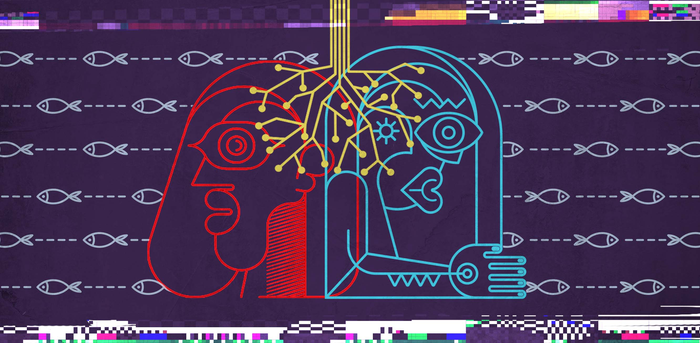 What do economics, biological evolution, and democracy have in common? They are all complex adaptive systems. This realization reflects one of the core strengths of a diverse intellectual background – there are meaningful commonalities underlying different systems and areas of knowledge. In fact, science and academia themselves are complex adaptive systems that benefit from diversity of knowledge and perspective. All such systems benefit from diversity, and suffer when that diversity is narrowed, possibly even fatally.
What do economics, biological evolution, and democracy have in common? They are all complex adaptive systems. This realization reflects one of the core strengths of a diverse intellectual background – there are meaningful commonalities underlying different systems and areas of knowledge. In fact, science and academia themselves are complex adaptive systems that benefit from diversity of knowledge and perspective. All such systems benefit from diversity, and suffer when that diversity is narrowed, possibly even fatally.
A recent collection of studies focuses on American democracy as a complex adaptive system, and explores the mathematical underpinnings of how democracies behave and change over time in response to specific variables. Some of the insights are not surprising, but the research adds mathematical rigor to these phenomena. For example, you will likely not be surprised to learn that social media echochambers (what they call “epistemic bubbles”) lead to increased polarization of political views. But how, exactly, does this happen?
What various researchers found is that when we obtain our political news from a network of like-minded people several things happen. First, the group tends to narrow over time in terms of political diversity. This happens because those who are considered “not pure enough” are ejected from the network, or leave because they feel less welcome. Further, people within the network tend to get access to less and less political news total, and the news they are exposed to is increasingly polarized. This doesn’t happen when such networks do not routinely share political news to begin with.
The core problem, therefore, seems to be the diversity of sources of information. Similar networks of people, in fact, can have a moderating effect on individual members, if the group maintains a diversity of sources of information reflecting a diversity of political opinions. Further, a healthy moderating effect is supported by individual members exploring outside the group for sources of information.
Continue Reading »
Sep
30
2021
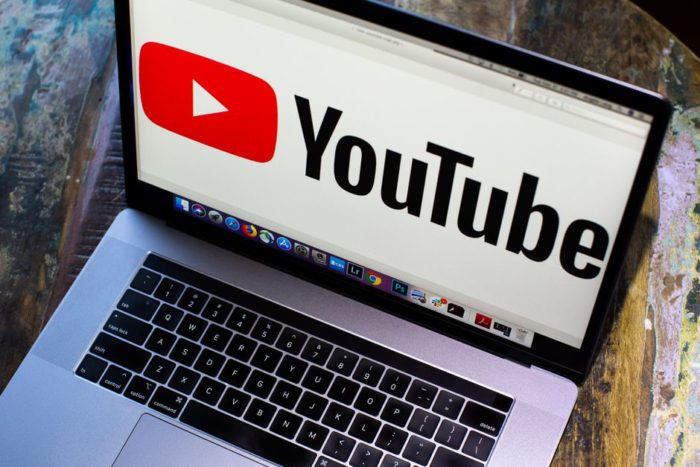
Last year YouTube (owned by Google) banned videos spreading misinformation about the COVID vaccines. The policy resulted in the removal of over 130,000 videos since last year. Now they announce that they are extending the ban to misinformation about any approved vaccine. The move is sure to provoke strong reactions and opinions on both sides, which I think is reasonable. The decision reflects a genuine dilemma of modern life with no perfect solution, and amounts to a “pick your poison” situation.
The case against big tech companies who control massive social media outlets essentially censoring certain kinds of content is probably obvious. That puts a lot of power into the hands of a few companies. It also goes against the principle of a free market place of ideas. In a free and open society people enjoy freedom of speech and the right to express their ideas, even (and especially) if they are unpopular. There is also a somewhat valid slippery slope argument to make – once the will and mechanisms are put into place to censor clearly bad content, mission creep can slowly impede on more and more opinions.
There is also, however, a strong case to be made for this kind of censorship. There has never been a time in our past when anyone could essentially claim the right to a massive megaphone capable of reaching most of the planet. Our approach to free speech may need to be tweaked to account for this new reality. Further, no one actually has the right to speech on any social media platform – these are not government sites nor are they owned by the public. They are private companies who have to the right to do anything they wish. The public, in turn, has the power to “vote with their dollars” and choose not to use or support any platform whose policies they don’t like. So the free market is still in operation.
Continue Reading »
Sep
17
2021
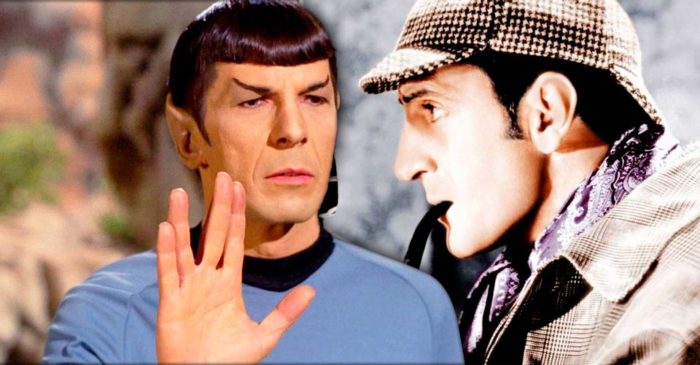 You’ve probably noticed that it’s very difficult to write a character who is extremely intelligent in some way. It’s easy to make a character knowledgeable, because you can just put a lot of facts into their mouth. The character Arthur P. Dietrich (played by Stephen Landesberg) on the sitcom Barney Miller always had a relevant fact at the ready. He seemed to know everything. What’s difficult is making a character wise, or giving them the ability to think in complex and logical ways. More specifically, it’s difficult to write a character that’s smarter than the writer themselves.
You’ve probably noticed that it’s very difficult to write a character who is extremely intelligent in some way. It’s easy to make a character knowledgeable, because you can just put a lot of facts into their mouth. The character Arthur P. Dietrich (played by Stephen Landesberg) on the sitcom Barney Miller always had a relevant fact at the ready. He seemed to know everything. What’s difficult is making a character wise, or giving them the ability to think in complex and logical ways. More specifically, it’s difficult to write a character that’s smarter than the writer themselves.
For me the most impressively written iconically smart character is Sherlock Holmes, written by Arthur Conan Doyle. It’s not impressive that Holmes always solved his cases or had a lot of factual knowledge; that’s the easy part. The author knows who did it and can just have their detective character get to the right answer. What is truly impressive is how Holmes worked through the cases, using genuinely impressive logic and reasoning. Holmes famously refers to his process as “deduction” but he was really mostly using inference to the most likely answer.
I admit I may be partial to Holmes because Doyle was a physician, and I can recognize a lot of clinical logic in Holmes’ thinking. In fact, I took a course on Sherlock Holmes in medical school, where we would make an analogy to how Holmes solved a particular case to how a physician might solve a clinical case. Here are some choice bits of logical advice from Holmes: Continue Reading »
Aug
16
2021
 A new study from Yale psychology researchers is the first to provide hard evidence that social media use magnifies expressions of outrage. This is likely not surprising to anyone familiar with social media, but we cannot take our anecdotal experience for granted, and so objective evidence is welcome.
A new study from Yale psychology researchers is the first to provide hard evidence that social media use magnifies expressions of outrage. This is likely not surprising to anyone familiar with social media, but we cannot take our anecdotal experience for granted, and so objective evidence is welcome.
The researchers used AI to analyze 12.7 million tweets from 7,331 Twitter users. The AI operationalized the assessment of how much outrage any particular tweet expressed. Of course it’s difficult to put a number on something abstract, like outrage, but as long as reasonable method was used consistently it could validly detect change over time. They found:
The team found that the incentives of social media platforms like Twitter really do change how people post. Users who received more “likes” and “retweets” when they expressed outrage in a tweet were more likely to express outrage in later posts. To back up these findings, the researchers conducted controlled behavioral experiments to demonstrate that being rewarded for expressing outrage caused users to increase their expression of outrage over time.
Again, this is not surprising. Vertebrate brains evolved to respond positively to reward (there are networks in the brain dedicated to this behavior). This is a well-researched aspect of behavior – reward positively reinforces the behavior that triggered the reward (or at least seemed to). In fact this behavior is so predictable you can base entire industries on it, with carefully calibrated precision. Casinos, for example, leverage this reward positive feedback loop to maximize engagement with gamblers, even though anyone with knowledge of the odds knows that the house will always win the long run.
Continue Reading »
May
06
2021
 People are extremely social animals, and being social means that you need to learn the rules that govern social interaction and society. This applies to social animal species as well. Corvids, for example, can remember the faces of animals that harm or threaten them and will punish them later. They will also punish their own members for not following the rule – fail to warn us when a predator is coming and we won’t warn or protect you next time. Young children also are quickly socialized, and learn that there are rules of fairness. Fairness also means that you cannot change the rules on the fly in order to favor your own interests over others. Children will try, for example, to make up new rules to a game in the middle in order to accommodate what has already happened. Other children are likely to immediately see this as unfair and loudly protest.
People are extremely social animals, and being social means that you need to learn the rules that govern social interaction and society. This applies to social animal species as well. Corvids, for example, can remember the faces of animals that harm or threaten them and will punish them later. They will also punish their own members for not following the rule – fail to warn us when a predator is coming and we won’t warn or protect you next time. Young children also are quickly socialized, and learn that there are rules of fairness. Fairness also means that you cannot change the rules on the fly in order to favor your own interests over others. Children will try, for example, to make up new rules to a game in the middle in order to accommodate what has already happened. Other children are likely to immediately see this as unfair and loudly protest.
We continue to engage in this behavior as adults. We’re just more adept at hiding it, or trying to justify it with some rationalization. One of the more blatant examples of this is gerrymandering. I have never heard anyone actually try to defend the practice. At best you get the lame excuse of – well, the other side will do it when they get a chance, so we have to do it to level the playing field. Or, more brazenly, they will just do it because they have the power to do so and think that this is justification enough.
Gerrymandering is the process of drawing congressional districts in order to favor your party. It has been accurately described as politicians choosing their voters, rather than voters choosing their politicians. It is one of the most obvious flaws in our current democratic system (referring to the US). It’s difficult to get rid of, however, because it can benefit both sides. The politicians in power benefit from gerrymandering, so it is self-sustaining. Gerrymandering is used in a couple of ways. One is to create safe seats, where one party has a lock and the other party has no chance. Safe seats favor extremism because candidates never have to appeal to the middle. Gerrymandering can also be used to favor a party by giving them more congressional seats than their share of the voters.
Continue Reading »
Apr
16
2021
Yet another study shows the benefits of delaying the start time for High School students. This study also looked at middle school and elementary school students, had a two year follow up, and including both parent and student feedback. In this study: “Participating elementary schools started 60 minutes earlier, middle, 40-60 minutes later, and high school started 70 minutes later,” and found
shows the benefits of delaying the start time for High School students. This study also looked at middle school and elementary school students, had a two year follow up, and including both parent and student feedback. In this study: “Participating elementary schools started 60 minutes earlier, middle, 40-60 minutes later, and high school started 70 minutes later,” and found
Researchers found that the greatest improvements in these measures occurred for high school students, who obtained an extra 3.8 hours of sleep per week after the later start time was implemented. More than one in ten high school students reported improved sleep quality and one in five reported less daytime sleepiness. The average “weekend oversleep,” or additional sleep on weekends, amongst high schoolers dropped from just over two hours to 1.2 hours, suggesting that with enough weekday sleep, students are no longer clinically sleep deprived and no longer feel compelled to “catch up” on weekends. Likewise, middle school students obtained 2.4 additional hours of sleep per week with a later school start time. Researchers saw a 12% decrease in middle schoolers reporting daytime sleepiness. The percent of elementary school students reporting sufficient sleep duration, poor sleep quality, or daytime sleepiness did not change over the course of the study.
This adds to prior research which shows similar results, and also shows that student academic performance and school attendance improves. For teens their mood improves, their physical health improves, and the rate of car crashes decreases. So it seems like an absolute no-brainer that the typical school start time should be adjusted to optimize these outcomes. Why isn’t it happening? Getting in the way are purely logistical problems – synchronizing school start times with parents who need to go to work, sharing buses among elementary, middle, and high school, and leaving enough time at the end of the day for extracurricular activities. But these are entirely solvable logistical hurdles.
Continue Reading »
Jan
28
2021
A recent study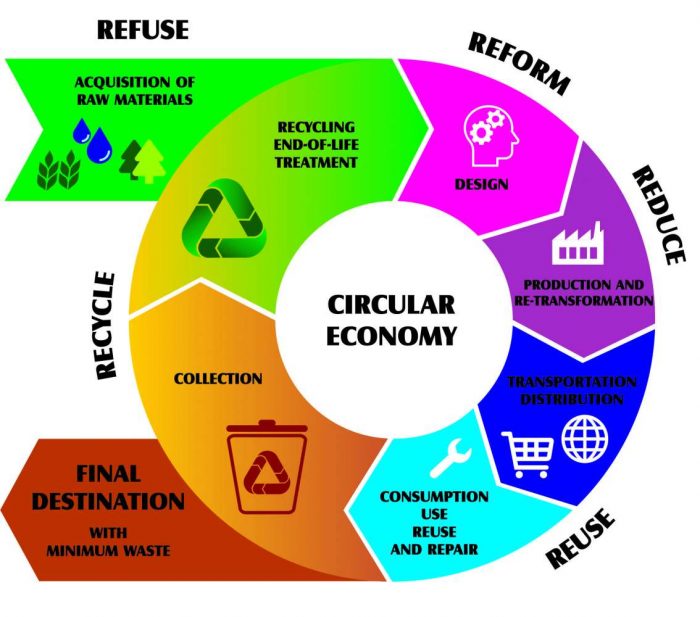 looks at the use of food waste to produce beneficial bacteria and nutrients for agriculture. Specifically they take beer mash and mixed produce discarded from a grocery store. They ferment it, and then add the result to the closed watering system of a greenhouse. The results are very encouraging – a significant increase in beneficial bacteria and carbon without any increase in pathogenic bacteria. In the US we waste about 50% of the food we grow and recycle only about 20% of it, so there is a huge untapped potential to return that food waste to the food-production stream. This system, if it works out, might add one method for doing so.
looks at the use of food waste to produce beneficial bacteria and nutrients for agriculture. Specifically they take beer mash and mixed produce discarded from a grocery store. They ferment it, and then add the result to the closed watering system of a greenhouse. The results are very encouraging – a significant increase in beneficial bacteria and carbon without any increase in pathogenic bacteria. In the US we waste about 50% of the food we grow and recycle only about 20% of it, so there is a huge untapped potential to return that food waste to the food-production stream. This system, if it works out, might add one method for doing so.
Such systems are an example of a circular production economy, rather than a linear system that begins with a natural resource and ends in a landfill. Linear systems are not indefinitely sustainable, as is becoming increasingly apparent as we approach 8 billion people on this planet. Anything we do on a global scale, like growing food, is going to be a stress on natural resources, including the availability of land.
Some argue, cruelly, in my opinion, that the best solution is to reduce the human population. I do think we need to ultimately get to a stable population, and the evidence shows an effective way to do this is to both combat poverty and promote women’s rights. This is then a win-win all around. We don’t have to starve people to death (people who propose this are never the ones who would starve), nor do we have to ban reproductive rights.
Eventually getting to a stable population in the billions, while a good thing, is not going to solve by itself the many issues of sustainability. Further, even if linear production from resource to landfill does not exhaust a specific resource it is still inefficient. So you don’t have to believe that we have or will reach “peak” whatever in order to see the advantages of designing a circular production economy.
Continue Reading »
Sep
18
2020
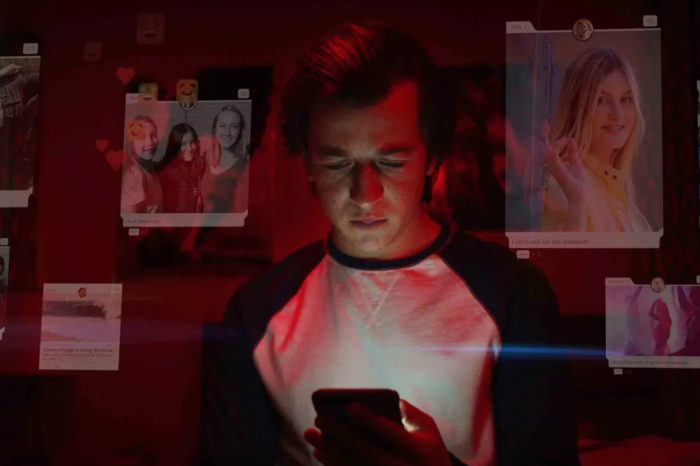 I just watched the Netflix documentary, The Social Dilemma, and found it extremely interesting, if flawed. The show is about the inside operation of the big social media tech companies and the impact they are having on society. Like all documentaries – this one has a particular narrative, and that narrative is a choice made by the filmmakers. These narratives never reflect the full complexity of reality, and often drive the viewer to a certain conclusion. In short, you can never take them at face value and should try to understand them in a broader context.
I just watched the Netflix documentary, The Social Dilemma, and found it extremely interesting, if flawed. The show is about the inside operation of the big social media tech companies and the impact they are having on society. Like all documentaries – this one has a particular narrative, and that narrative is a choice made by the filmmakers. These narratives never reflect the full complexity of reality, and often drive the viewer to a certain conclusion. In short, you can never take them at face value and should try to understand them in a broader context.
Having said that, there is a lot of useful insight in the film. What it does well is interview tech insiders who expose the thinking on the part of corporations. We already know many of the pitfalls of social media, and I have discussed many of them here. Social media can be addictive, can lead to depression and a low self-esteem, and to FOMO (fear of missing out). We definitely need to explore the psychological aspects of social media, and this is still a new and active area of research.
Also, social media lends itself to information bubbles. When we rely mostly on social media for our news and information, over time that information is increasing curated to cater to a particular point of view. We can go down rabbit holes of subculture, conspiracy theories, and radical political perspectives. Social media algorithsms have essentially convinced people that the Earth is flat, that JFK Jr. is alive and secretly working for Trump, and that the experts are all lying to us.
This is where I think the documentary was very persuasive and the conclusions resonated. They argued that increasingly people of different political identities are literally living in different worlds. They are cocooned in an information ecosystem that not only has its own set of opinions but its own set of facts. This makes a conversation between different camps impossible. There is no common ground of a shared reality. In fact, the idea of facts, truth, and reality fades away and is replaced entirely with opinion and perspective, and a false equivalency that erases expertise, process, and any measure of validity. At least, this is what happens in the extreme (and I think we have all experienced this).
Continue Reading »
Aug
18
2020
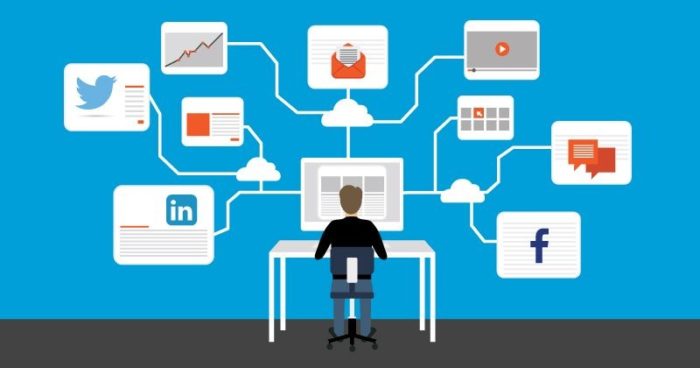 This is one of those things that futurists did not predict at all, but now seems obvious and unavoidable – the degree to which computer algorithms affect your life. It’s always hard to make negative statements, and they have to be qualified – but I am not aware of any pre-2000 science fiction or futurism that even discussed the role of social media algorithms or other informational algorithms on society and culture (as always, let me know if I’m missing something). But in a very short period of time they have become a major challenge for many societies. It also is now easy to imagine how computer algorithms will be a dominant topic in the future. People will likely debate their role, who controls them and who should control them, and what regulations, if any, should be put in place.
This is one of those things that futurists did not predict at all, but now seems obvious and unavoidable – the degree to which computer algorithms affect your life. It’s always hard to make negative statements, and they have to be qualified – but I am not aware of any pre-2000 science fiction or futurism that even discussed the role of social media algorithms or other informational algorithms on society and culture (as always, let me know if I’m missing something). But in a very short period of time they have become a major challenge for many societies. It also is now easy to imagine how computer algorithms will be a dominant topic in the future. People will likely debate their role, who controls them and who should control them, and what regulations, if any, should be put in place.
The worse outcome is if this doesn’t happen, meaning that people are not aware of the role of algorithms in their life and who controls them. That is essentially what is happening in China and other authoritarian nations. Social media algorithms are an authoritarian’s dream – they give them incredible power to control what people see, what information they get exposed to, and to some extent what they think. This is 1984 on steroids. Orwell imagined that in order to control what and how people think authoritarians would control language (double-plus good). Constrain language and you constrain thought. That was an interesting idea pre-web and pre-social media. Now computer algorithms can control the flow of information, and by extension what people know and think, seamlessly, invisibly, and powerfully to a scary degree.
Even in open democratic societies, however, the invisible hand of computer algorithms can wreak havoc. Social scientists studying this phenomenon are increasing sounding warning bells. A recent example is an anti-extremist group in the UK who now are warning, according to their research, that Facebook algorithms are actively promoting holocaust denial and other conspiracy theories. They found, unsurprisingly, that visitors to Facebook pages that deny the holocaust were then referred to other pages that also deny the holocaust. This in turn leads to other conspiracies that also refer to still other conspiracy content, and down the rabbit hole you go.
Continue Reading »
Jun
19
2020
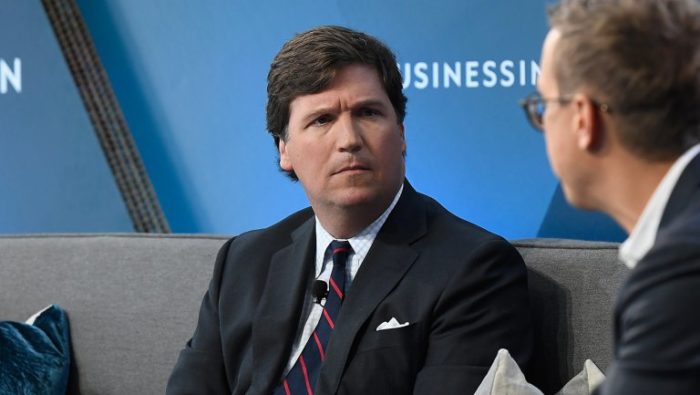 The line between news and commentary has arguably become more blurred in recent decades. This has implications for libel law, which also reflects the shifting media landscape. A recent lawsuit involving Tucker Carlson illustrates the problem.
The line between news and commentary has arguably become more blurred in recent decades. This has implications for libel law, which also reflects the shifting media landscape. A recent lawsuit involving Tucker Carlson illustrates the problem.
Carlson is being sued for defamation by Karen McDougal for a segment in which she claims Carlson accused her of extortion. She is one of two women that we know of who were paid off to remain silent about affairs with Trump. Here is the money quote from Carlson:
“Two women approached Donald Trump and threatened to ruin his career and humiliate his family if he doesn’t give them money. Now that sounds like a classic case of extortion.”
For background, libel cases are hard to prove in the US. You need to demonstrate that statements were made in public that are claims to facts, that are factually wrong, where the person making the statement knew they were wrong or had a disregard for the truth, that there was malice of intent, and that actual harm resulted. For some statements you don’t have to prove harm, they are “libel per se,” such as accusing someone of pedophilia. The harm is taken for granted. If the target of the alleged defamation is a public figure, then the burden of proof is even higher.
At issue here are whether Carlson’s statements were presented as facts or opinion. Opinion is completely protected free speech, and cannot be defamatory legally. The first part of Carlson’s statement above is stated as simple fact. The second part (“that sounds like”) seems to be his analysis or opinion. Forgetting the other aspects of the defamation standard for now, this question seems to be the crux of the case. Was Carlson making a factual claim he knew to be untrue, or without concern for whether or not it was true? The defamation standard requires more than just being wrong.
Continue Reading »
 What do economics, biological evolution, and democracy have in common? They are all complex adaptive systems. This realization reflects one of the core strengths of a diverse intellectual background – there are meaningful commonalities underlying different systems and areas of knowledge. In fact, science and academia themselves are complex adaptive systems that benefit from diversity of knowledge and perspective. All such systems benefit from diversity, and suffer when that diversity is narrowed, possibly even fatally.
What do economics, biological evolution, and democracy have in common? They are all complex adaptive systems. This realization reflects one of the core strengths of a diverse intellectual background – there are meaningful commonalities underlying different systems and areas of knowledge. In fact, science and academia themselves are complex adaptive systems that benefit from diversity of knowledge and perspective. All such systems benefit from diversity, and suffer when that diversity is narrowed, possibly even fatally.

 You’ve probably noticed that it’s very difficult to write a character who is extremely intelligent in some way. It’s easy to make a character knowledgeable, because you can just put a lot of facts into their mouth. The character Arthur P. Dietrich (played by Stephen Landesberg) on the sitcom Barney Miller always had a relevant fact at the ready. He seemed to know everything. What’s difficult is making a character wise, or giving them the ability to think in complex and logical ways. More specifically, it’s difficult to write a character that’s smarter than the writer themselves.
You’ve probably noticed that it’s very difficult to write a character who is extremely intelligent in some way. It’s easy to make a character knowledgeable, because you can just put a lot of facts into their mouth. The character Arthur P. Dietrich (played by Stephen Landesberg) on the sitcom Barney Miller always had a relevant fact at the ready. He seemed to know everything. What’s difficult is making a character wise, or giving them the ability to think in complex and logical ways. More specifically, it’s difficult to write a character that’s smarter than the writer themselves. A
A  People are extremely social animals, and being social means that you need to learn the rules that govern social interaction and society. This applies to social animal species as well. Corvids, for example, can remember the faces of animals that harm or threaten them and
People are extremely social animals, and being social means that you need to learn the rules that govern social interaction and society. This applies to social animal species as well. Corvids, for example, can remember the faces of animals that harm or threaten them and 

 I just watched the Netflix documentary, The Social Dilemma, and found it extremely interesting, if flawed. The show is about the inside operation of the big social media tech companies and the impact they are having on society. Like all documentaries – this one has a particular narrative, and that narrative is a choice made by the filmmakers. These narratives never reflect the full complexity of reality, and often drive the viewer to a certain conclusion. In short, you can never take them at face value and should try to understand them in a broader context.
I just watched the Netflix documentary, The Social Dilemma, and found it extremely interesting, if flawed. The show is about the inside operation of the big social media tech companies and the impact they are having on society. Like all documentaries – this one has a particular narrative, and that narrative is a choice made by the filmmakers. These narratives never reflect the full complexity of reality, and often drive the viewer to a certain conclusion. In short, you can never take them at face value and should try to understand them in a broader context. This is one of those things that futurists did not predict at all, but now seems obvious and unavoidable – the degree to which computer algorithms affect your life. It’s always hard to make negative statements, and they have to be qualified – but I am not aware of any pre-2000 science fiction or futurism that even discussed the role of social media algorithms or other informational algorithms on society and culture (as always, let me know if I’m missing something). But in a very short period of time they have become a major challenge for many societies. It also is now easy to imagine how computer algorithms will be a dominant topic in the future. People will likely debate their role, who controls them and who should control them, and what regulations, if any, should be put in place.
This is one of those things that futurists did not predict at all, but now seems obvious and unavoidable – the degree to which computer algorithms affect your life. It’s always hard to make negative statements, and they have to be qualified – but I am not aware of any pre-2000 science fiction or futurism that even discussed the role of social media algorithms or other informational algorithms on society and culture (as always, let me know if I’m missing something). But in a very short period of time they have become a major challenge for many societies. It also is now easy to imagine how computer algorithms will be a dominant topic in the future. People will likely debate their role, who controls them and who should control them, and what regulations, if any, should be put in place. The line between news and commentary has arguably become more blurred in recent decades. This has implications for libel law, which also reflects the shifting media landscape.
The line between news and commentary has arguably become more blurred in recent decades. This has implications for libel law, which also reflects the shifting media landscape. 




